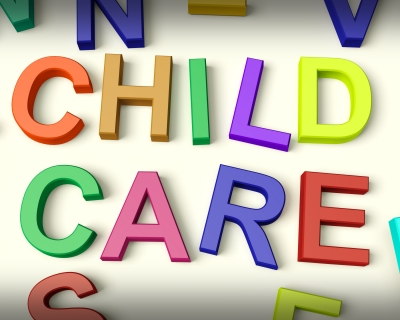
Do you have employees? Did you pay them during April, May or June? If yes, then you have payroll reports due for the 2nd quarter of this calendar year.
sssss
What if you didn’t pay any employees during April, May or June? If you have been filing these quarterly reports and did not tell the Internal Revenue Service that you stopped having employees, you have to file these reports for the second quarter, too. You will just report zero wages and zero withholdings.
sssss
There is nothing simple about the IRS. There is a little wrinkle here for some employers. If you have been given permission to file an annual 944 instead of the quarterly 941, you may just have quarterly state reports to file.
sssss
But for most of us, you now know July 31st is the due date for Q2 (second quarter) payroll reports. Not just the reports, but the payments due with them, also.
sssss
It is easier for some people to work with numbers. I am a number cruncher. I prepare reports for my own company and I prepare reports for several business clients. All my payroll clients have to do is tell me the details.
sssss
The details are not difficult. they give me a list of employees with their names, addresses and social security numbers. MAJOR TIP: Never write anyone any paycheck until you have this information AND you have their completed form I-9.
sssss
For every paydate, I need the following information. 1) the name of the employee, 2) the amount of the check, 3) the amounts withheld and for what.
sssss
The amount you wrote the check for is called the “net” check. “Net” take-home pay is AFTER deductions. The amount of the paycheck BEFORE deductions is called “gross” paycheck. I need to know how much you withheld for each of the taxes your employee may be subject to.
sssss
Taxes must be withheld from each employee’s paycheck. These taxes start with the employee’s one-half of social security and medicare taxes. Based on the employees gross check they may also have federal income taxes withheld. And if you pay workers who live in a state that has stare income tax, you may also be withholding state income taxes.
sssss
You may have other employee benefits that the employee pays for out of his check. An example of this could be the tools a mechanic buys for his job that he pays for out of his paycheck. This deduction does not change what he makes, but it does change what he takes home.
sssss
When it comes to social security and medicare taxes, the employee is only responsible to pay half. YOU, the employer, pay the other half of these two taxes. If you fail to withhold these taxes from your employee’s pay, you are responsible to pay the WHOLE amount. You can wind up paying both halves when you don’t withhold from the employee.
sssss
You, the employer, are also responsible for paying federal unemployment taxes. You may send a payment every quarter, but this report is not due until the end of the year. Your state, however, may have a report and payment due each quarter.
sssss
What’s next? File your reports and pay the taxes due for Q2 before July 31st to avoid penalties and interest for late filing and/or late payment.
 Did you know the Internal Revenue Service can ask to see your bank statements? It is important for you to understand why.
…
Having a business is a little like having a child. Both the child and the business are a part of you, but they are also separate from you.
…
Are you a business owner? No matter how small a business, if you are in business, your business needs its own bank account.
…
You will deposit every penny, EVERY penny your business earns into that business bank account. You may want to have both a business checking account and a business savings account. When you have more money than you need to cover expenses, you can transfer that beautiful excess into your savings account.
…
When you deposit your business proceeds into your bank account, it should be easy to match those deposits to your sales records. In the accounting world, that is known as “tying” the deposits to the sales records.
…
When you transfer money from one account to the other, it is important to make a note to remind you that this is not new money being deposited. It is a TRANSFER from checking to savings or vice-versa.
…
In the beginning of your business you may “seed” your account with your personal money. This is not business income. This is your investment in your own business. You may have other people invest in your business. If you give them shares of your business stock in return for their money, they are now a stockholder in your business. You want to be sure to record (make a note of) that transaction.
…
There may come a time when you need to borrow money. When you take out a business loan to help fund your operations, the money you owe becomes a liability on your balance sheet. This blog post is not about accounting, it is about your bank statements. The loan you receive is not income from the sale of your products or services. The loan is not taxable income. You want to make sure you are protecting yourself by making adequate notes about what money is going into your bank accounts.
…
When the IRS examines a business tax return, they often ask to see the bank statements. They want to know how much money is going into your bank accounts. They will examine your income records and match them to your bank activity. If you cannot prove that extra $10,000 was a loan from Aunt Mary, then that $10,000 could become taxable income in the eyes of the IRS Agent. And if you are in the 15% tax bracket, a $10,000 adjustment to your return could cost you $1500! You don’t owe tax on the loan. Documentation is your protection.
…
Remember, as an American, you are taxed on your WORLDWIDE income. Wages, business profits, interest income and dividends from stocks and bonds are just some of the types of taxable income. Transfers between accounts, loans, and gifts are generally not taxable.
…
I just want you to have the information you need to protect yourself when it comes to your taxes.
Did you know the Internal Revenue Service can ask to see your bank statements? It is important for you to understand why.
…
Having a business is a little like having a child. Both the child and the business are a part of you, but they are also separate from you.
…
Are you a business owner? No matter how small a business, if you are in business, your business needs its own bank account.
…
You will deposit every penny, EVERY penny your business earns into that business bank account. You may want to have both a business checking account and a business savings account. When you have more money than you need to cover expenses, you can transfer that beautiful excess into your savings account.
…
When you deposit your business proceeds into your bank account, it should be easy to match those deposits to your sales records. In the accounting world, that is known as “tying” the deposits to the sales records.
…
When you transfer money from one account to the other, it is important to make a note to remind you that this is not new money being deposited. It is a TRANSFER from checking to savings or vice-versa.
…
In the beginning of your business you may “seed” your account with your personal money. This is not business income. This is your investment in your own business. You may have other people invest in your business. If you give them shares of your business stock in return for their money, they are now a stockholder in your business. You want to be sure to record (make a note of) that transaction.
…
There may come a time when you need to borrow money. When you take out a business loan to help fund your operations, the money you owe becomes a liability on your balance sheet. This blog post is not about accounting, it is about your bank statements. The loan you receive is not income from the sale of your products or services. The loan is not taxable income. You want to make sure you are protecting yourself by making adequate notes about what money is going into your bank accounts.
…
When the IRS examines a business tax return, they often ask to see the bank statements. They want to know how much money is going into your bank accounts. They will examine your income records and match them to your bank activity. If you cannot prove that extra $10,000 was a loan from Aunt Mary, then that $10,000 could become taxable income in the eyes of the IRS Agent. And if you are in the 15% tax bracket, a $10,000 adjustment to your return could cost you $1500! You don’t owe tax on the loan. Documentation is your protection.
…
Remember, as an American, you are taxed on your WORLDWIDE income. Wages, business profits, interest income and dividends from stocks and bonds are just some of the types of taxable income. Transfers between accounts, loans, and gifts are generally not taxable.
…
I just want you to have the information you need to protect yourself when it comes to your taxes.  Did you know the Internal Revenue Service can ask to see your bank statements? It is important for you to understand why.
…
Having a business is a little like having a child. Both the child and the business are a part of you, but they are also separate from you.
…
Are you a business owner? No matter how small a business, if you are in business, your business needs its own bank account.
…
You will deposit every penny, EVERY penny your business earns into that business bank account. You may want to have both a business checking account and a business savings account. When you have more money than you need to cover expenses, you can transfer that beautiful excess into your savings account.
…
When you deposit your business proceeds into your bank account, it should be easy to match those deposits to your sales records. In the accounting world, that is known as “tying” the deposits to the sales records.
…
When you transfer money from one account to the other, it is important to make a note to remind you that this is not new money being deposited. It is a TRANSFER from checking to savings or vice-versa.
…
In the beginning of your business you may “seed” your account with your personal money. This is not business income. This is your investment in your own business. You may have other people invest in your business. If you give them shares of your business stock in return for their money, they are now a stockholder in your business. You want to be sure to record (make a note of) that transaction.
…
There may come a time when you need to borrow money. When you take out a business loan to help fund your operations, the money you owe becomes a liability on your balance sheet. This blog post is not about accounting, it is about your bank statements. The loan you receive is not income from the sale of your products or services. The loan is not taxable income. You want to make sure you are protecting yourself by making adequate notes about what money is going into your bank accounts.
…
When the IRS examines a business tax return, they often ask to see the bank statements. They want to know how much money is going into your bank accounts. They will examine your income records and match them to your bank activity. If you cannot prove that extra $10,000 was a loan from Aunt Mary, then that $10,000 could become taxable income in the eyes of the IRS Agent. And if you are in the 15% tax bracket, a $10,000 adjustment to your return could cost you $1500! You don’t owe tax on the loan. Documentation is your protection.
…
Remember, as an American, you are taxed on your WORLDWIDE income. Wages, business profits, interest income and dividends from stocks and bonds are just some of the types of taxable income. Transfers between accounts, loans, and gifts are generally not taxable.
…
I just want you to have the information you need to protect yourself when it comes to your taxes.
Did you know the Internal Revenue Service can ask to see your bank statements? It is important for you to understand why.
…
Having a business is a little like having a child. Both the child and the business are a part of you, but they are also separate from you.
…
Are you a business owner? No matter how small a business, if you are in business, your business needs its own bank account.
…
You will deposit every penny, EVERY penny your business earns into that business bank account. You may want to have both a business checking account and a business savings account. When you have more money than you need to cover expenses, you can transfer that beautiful excess into your savings account.
…
When you deposit your business proceeds into your bank account, it should be easy to match those deposits to your sales records. In the accounting world, that is known as “tying” the deposits to the sales records.
…
When you transfer money from one account to the other, it is important to make a note to remind you that this is not new money being deposited. It is a TRANSFER from checking to savings or vice-versa.
…
In the beginning of your business you may “seed” your account with your personal money. This is not business income. This is your investment in your own business. You may have other people invest in your business. If you give them shares of your business stock in return for their money, they are now a stockholder in your business. You want to be sure to record (make a note of) that transaction.
…
There may come a time when you need to borrow money. When you take out a business loan to help fund your operations, the money you owe becomes a liability on your balance sheet. This blog post is not about accounting, it is about your bank statements. The loan you receive is not income from the sale of your products or services. The loan is not taxable income. You want to make sure you are protecting yourself by making adequate notes about what money is going into your bank accounts.
…
When the IRS examines a business tax return, they often ask to see the bank statements. They want to know how much money is going into your bank accounts. They will examine your income records and match them to your bank activity. If you cannot prove that extra $10,000 was a loan from Aunt Mary, then that $10,000 could become taxable income in the eyes of the IRS Agent. And if you are in the 15% tax bracket, a $10,000 adjustment to your return could cost you $1500! You don’t owe tax on the loan. Documentation is your protection.
…
Remember, as an American, you are taxed on your WORLDWIDE income. Wages, business profits, interest income and dividends from stocks and bonds are just some of the types of taxable income. Transfers between accounts, loans, and gifts are generally not taxable.
…
I just want you to have the information you need to protect yourself when it comes to your taxes. 








